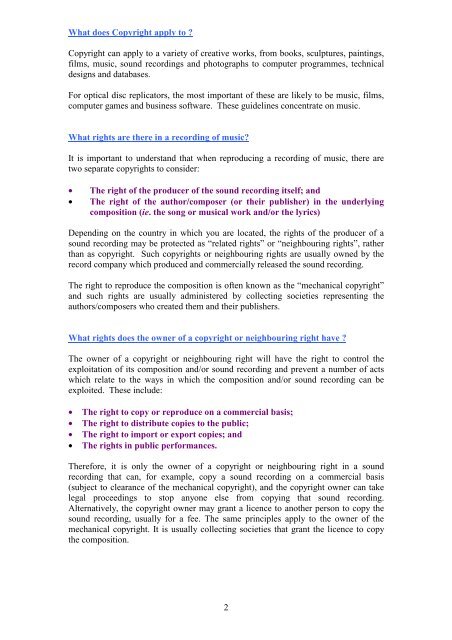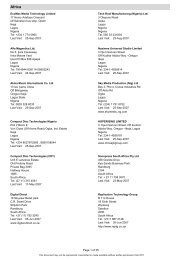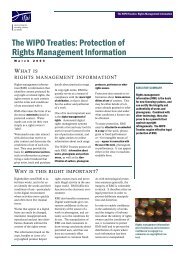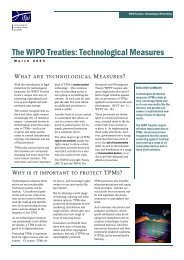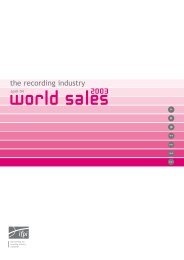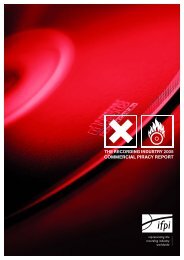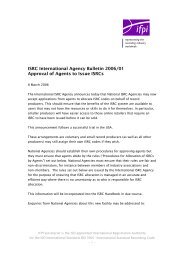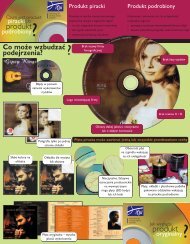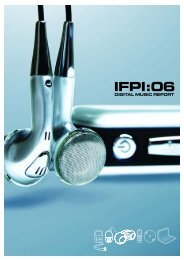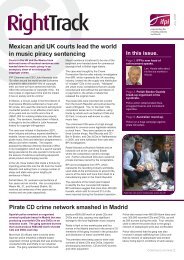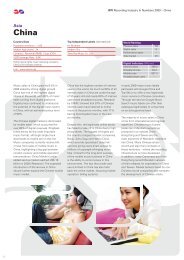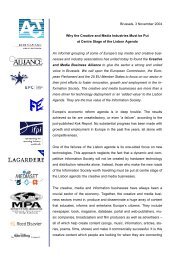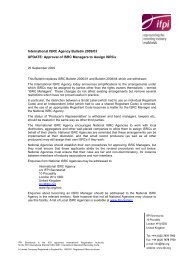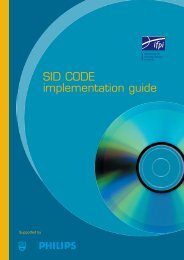Copyright For Replicators - How To Protect Your Business - IFPI
Copyright For Replicators - How To Protect Your Business - IFPI
Copyright For Replicators - How To Protect Your Business - IFPI
Create successful ePaper yourself
Turn your PDF publications into a flip-book with our unique Google optimized e-Paper software.
What does <strong>Copyright</strong> apply to ?<br />
<strong>Copyright</strong> can apply to a variety of creative works, from books, sculptures, paintings,<br />
films, music, sound recordings and photographs to computer programmes, technical<br />
designs and databases.<br />
<strong>For</strong> optical disc replicators, the most important of these are likely to be music, films,<br />
computer games and business software. These guidelines concentrate on music.<br />
What rights are there in a recording of music?<br />
It is important to understand that when reproducing a recording of music, there are<br />
two separate copyrights to consider:<br />
• The right of the producer of the sound recording itself; and<br />
• The right of the author/composer (or their publisher) in the underlying<br />
composition (ie. the song or musical work and/or the lyrics)<br />
Depending on the country in which you are located, the rights of the producer of a<br />
sound recording may be protected as “related rights” or “neighbouring rights”, rather<br />
than as copyright. Such copyrights or neighbouring rights are usually owned by the<br />
record company which produced and commercially released the sound recording.<br />
The right to reproduce the composition is often known as the “mechanical copyright”<br />
and such rights are usually administered by collecting societies representing the<br />
authors/composers who created them and their publishers.<br />
What rights does the owner of a copyright or neighbouring right have ?<br />
The owner of a copyright or neighbouring right will have the right to control the<br />
exploitation of its composition and/or sound recording and prevent a number of acts<br />
which relate to the ways in which the composition and/or sound recording can be<br />
exploited. These include:<br />
• The right to copy or reproduce on a commercial basis;<br />
• The right to distribute copies to the public;<br />
• The right to import or export copies; and<br />
• The rights in public performances.<br />
Therefore, it is only the owner of a copyright or neighbouring right in a sound<br />
recording that can, for example, copy a sound recording on a commercial basis<br />
(subject to clearance of the mechanical copyright), and the copyright owner can take<br />
legal proceedings to stop anyone else from copying that sound recording.<br />
Alternatively, the copyright owner may grant a licence to another person to copy the<br />
sound recording, usually for a fee. The same principles apply to the owner of the<br />
mechanical copyright. It is usually collecting societies that grant the licence to copy<br />
the composition.<br />
2


